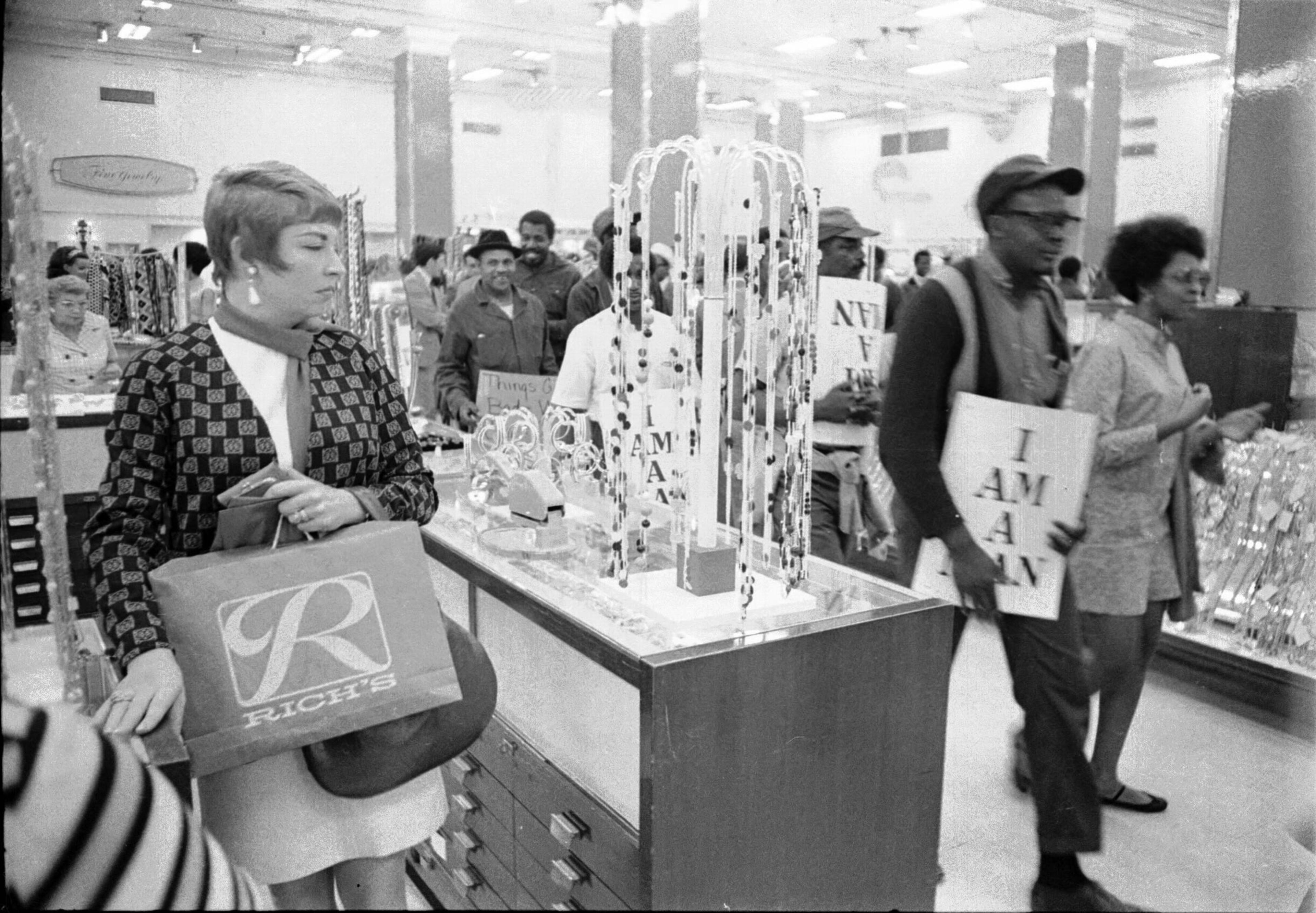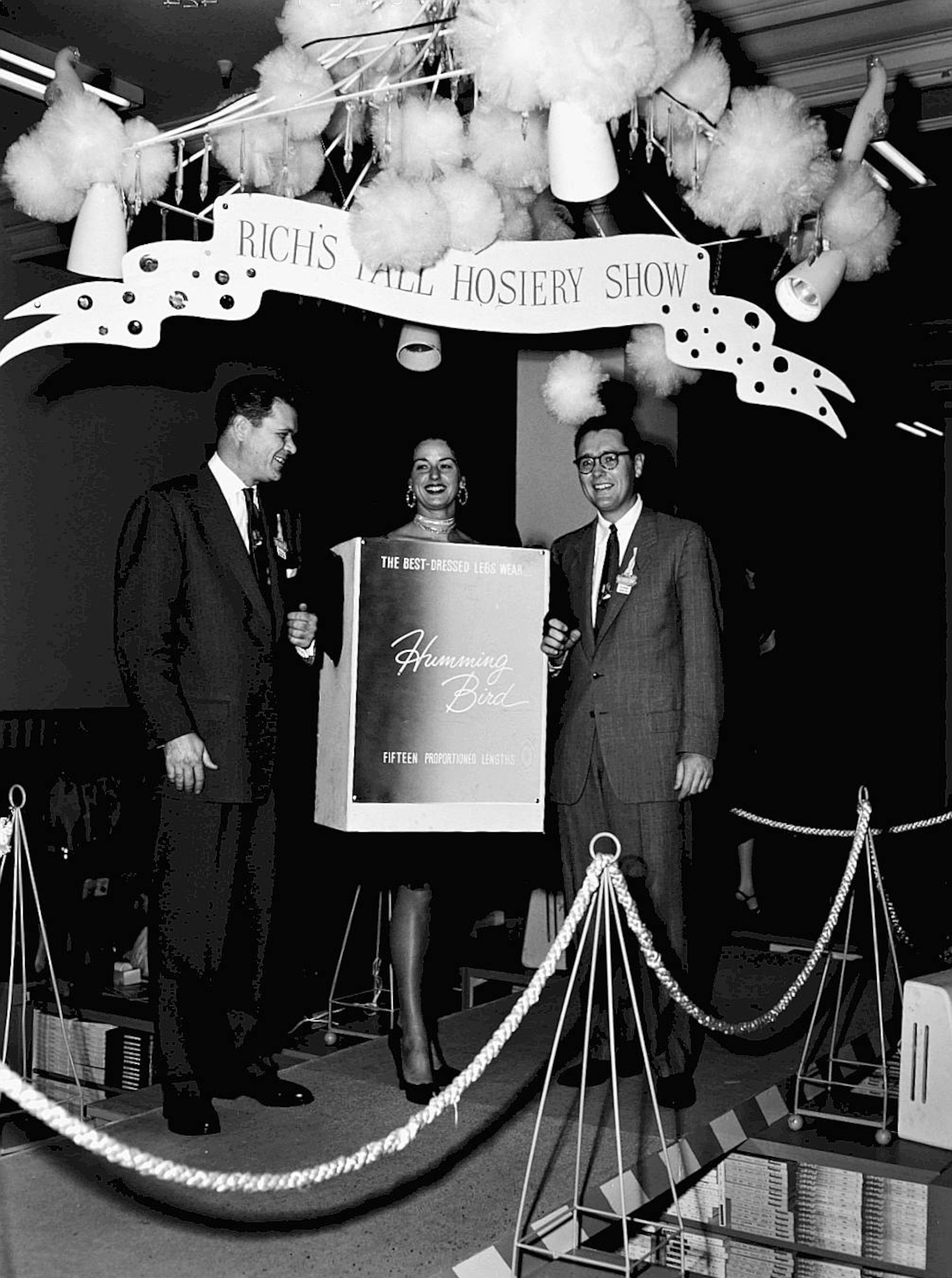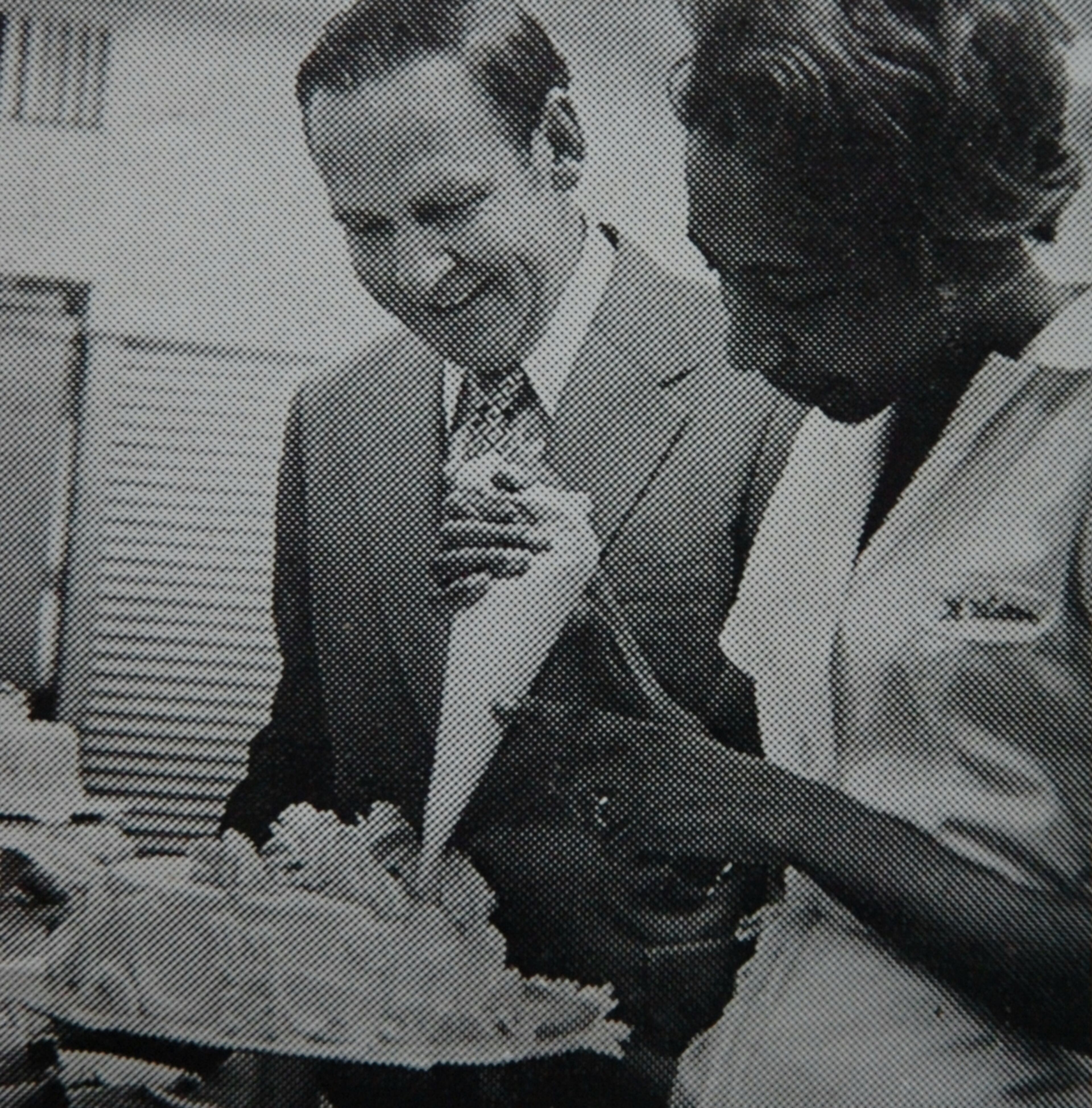Old-time Atlantans sad to see Rich’s end
























For Atlantans who aren’t “from here,” the disappearance of “Rich’s” from the Rich’s-Macy’s department stores might not be very troubling.
For the minority who grew up here, who remember the Carnegie Library and the Depot (as opposed to, say the Carnegie Deli and Home Depot), the name makes a difference.
“Macy’s Great Tree? Macy’s Pink Pig?” cried lifelong Atlantan David Stewart. Sorry, said Stewart, 30, but the words just don’t fit.
In 1867, when Atlanta was digging out from under the rubble of the Civil War, Morris Rich opened a 20-by-75-foot dry goods store at 36 Whitehall St.
For the next 137 years, store and city grew together. For some, the two are inextricable.
“It’s a nice part of your life that’s missing now,” said Sandra Rowland, 64, an administrative assistant at Sandy Springs Middle School.
Though Rowland is only a 20-year resident of the city --- she moved from the Chicago suburb of Naperville in the 1980s --- Rich’s to her meant a treat: a trip downtown, a meal at the Magnolia Room and impeccable attention from the clerks.
Rich’s made it its business to be a part of Atlanta. There were community birthday parties every year for 80-year-olds; there was the lighting of Rich’s Great Tree and caroling every Christmas season; and there was service, service, service.
You didn’t like the lipstick you bought? You changed your mind about those shoes? The folks there would make it right. “There was never a question about ‘where is your receipt?’ " Rowland said.
When Rich’s celebrated the installation of Atlanta’s first escalators in the downtown store in 1942, a woman dressed as Scarlett O’Hara was part of the party
Rowland imagines that the Macy’s name is intended to appeal to the growing population of transplanted New Yorkers and viewers of “Miracle on 34th Street,” but adds, “it’s a shame you’re losing your Southern atmosphere.”
Landmarks come and go, but in Atlanta they mostly go. “The city’s changed a great deal,” said David Barnett, 42, great-great-grandson of Morris Rich. “History does seem to escape us, and anything that has a sense of history seems to be melting away.”
While the Rich name lives on at the Richard H. Rich Theatre at the Woodruff Arts Center, other familiar appellations are gone --- such as the DeGive Opera House, Loew’s movie theater and the Kimball House.
Barnett points out that during the civil rights era, attention was focused on Rich’s because the store represented the epicenter of Atlanta life. Though African-Americans had been shopping there for years, the lunch counters and other facilities were integrated in 1961.
Federated Department Stores, based in Cincinnati, bought Rich’s in 1976 and then the much bigger Macy’s chain in 1994.
A year and a half ago, their stores were co-branded with both names, and some observers figured the elimination of the Rich’s name was a matter of time.
For that even smaller minority of lifelong Atlantans who are also Jewish, the disappearance of the Rich’s name cuts particularly deep.
“First of all, I think it’s fabulous when companies are good citizens, and as Jewish [people], we are very proud of Rich’s and the Jewish folks who were leaders of that store,” said Sherry Frank, executive director of the American Jewish Committee’s Atlanta chapter.
“Thank goodness people saved the Fox!” she added. “And I still love the Varsity.”
The name dropping doesn’t sit well with Stewart. “I thoroughly understand the business reasons,” said the financial analyst. But the name that was lauded by the late Journal-Constitution columnist Celestine Sibley in her book “Dear Store” shouldn’t be discarded, he said. “I hope that Celestine Sibley comes back from her grave and haunts the powers that be at Federated.”
And as for “the world’s largest Hanukkah bush” --- the Rich’s Great Tree --- Barnett doesn’t think it could smell as sweet with any other name. “I wish they’d dispose of it, instead of calling it the Macy’s tree,” he said. “I wish they’d just do away with it.”


